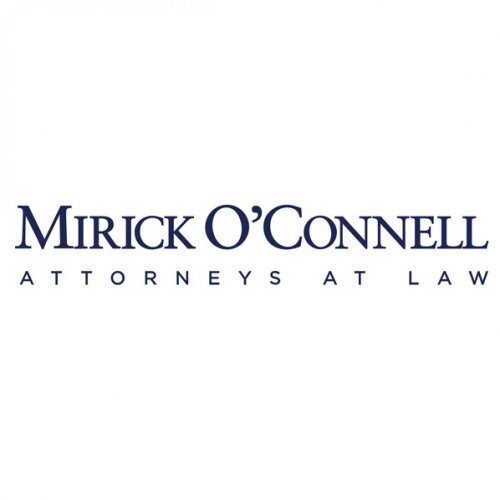Best Child Custody Lawyers in Massachusetts
Share your needs with us, get contacted by law firms.
Free. Takes 2 min.
Free Guide to Hiring a Family Lawyer
Or refine your search by selecting a city:
List of the best lawyers in Massachusetts, United States
About Child Custody Law in Massachusetts, United States
Child custody law in Massachusetts governs the legal relationship between parents and their children during and after a separation or divorce. Custody decisions play a crucial role in determining where a child lives, who makes decisions about their welfare, and how parenting responsibilities are shared. The primary focus of Massachusetts courts when deciding custody issues is always the best interests of the child. It is important to understand that both parents have legal rights and responsibilities, and custody can be awarded to one or both parents depending on various factors assessed by the court.
Why You May Need a Lawyer
Child custody disputes can be emotionally charged and complicated. You may need a lawyer if you find yourself in situations such as:
- You and the other parent cannot agree on custody or parenting schedules
- There are allegations of abuse, neglect, or domestic violence
- You are concerned for your child’s safety with the other parent
- The other parent has hired a lawyer
- You are seeking to relocate with your child, or the other parent is
- You need to modify an existing custody order due to changes in circumstances
- There are complex legal or jurisdictional issues, such as interstate custody disputes
- The Department of Children and Families (DCF) is involved
Consulting with a lawyer helps ensure your rights are protected and allows you to navigate the legal system effectively.
Local Laws Overview
Massachusetts child custody is governed primarily by Massachusetts General Laws Chapter 208 and related statutes. There are two primary types of custody:
- Legal custody: The right to make major decisions about a child’s welfare, education, and health.
- Physical custody: Where and with whom the child will live.
Custody can be sole (one parent) or joint (both parents share). Courts prefer arrangements that allow both parents to remain involved unless there is evidence showing that such arrangements are not in the best interests of the child. The judge will consider factors including the child’s needs, each parent’s ability to provide for the child, the stability of each home, the relationship between the child and each parent, and any history of abuse or neglect. Unmarried parents also have rights, but mothers are presumed to have sole custody at birth unless a father establishes paternity. Massachusetts courts will enforce court-ordered parenting plans and may modify orders if circumstances substantially change.
Frequently Asked Questions
What does "best interests of the child" mean?
This is the legal standard Massachusetts courts use to decide custody. Factors include the child’s age, health, emotional ties with each parent, domestic stability, and each parent’s ability to meet the child’s needs.
What is the difference between legal and physical custody?
Legal custody involves the right to make major decisions about the child, such as education or medical care. Physical custody refers to where the child primarily lives.
Can grandparents or third parties seek custody or visitation?
In certain situations, especially if it serves the best interests of the child, grandparents or other relatives may petition the court for visitation or custody, but the standards are strict.
Is joint custody always granted?
No. Massachusetts courts only award joint custody if they believe parents can cooperate effectively in raising the child and such an arrangement benefits the child.
How do I establish paternity if I am an unmarried father?
You must sign a voluntary acknowledgment of paternity or seek a court order to establish legal paternity, after which you may petition for custody or parenting time.
How can custody or parenting time orders be modified?
You or the other parent must show that there has been a material and substantial change in circumstances since the last order, and that the change is in the child’s best interests.
What happens if one parent violates a custody order?
You can file a complaint for contempt in the appropriate probate and family court to enforce the order. The court may impose penalties or modify the order if needed.
Can I move out of Massachusetts with my child?
In most cases, you need court approval or the other parent’s permission to move out of state with your child, especially if it impacts the other parent’s rights.
How do Massachusetts courts handle domestic violence in custody cases?
If there is evidence of abuse, the court will prioritize the safety of the child and may limit or supervise the abusive parent’s contact with the child.
How long does a child custody case take in Massachusetts?
The duration varies depending on complexity, cooperation between parents, whether the case goes to trial, and court schedules. Some cases resolve quickly, others may take many months.
Additional Resources
There are several resources and organizations in Massachusetts that assist parents with child custody matters:
- Massachusetts Probate and Family Court: Handles all custody cases and provides forms and guidelines.
- Massachusetts Department of Children and Families (DCF): Involved when there are concerns of child abuse or neglect.
- MassLegalHelp: Offers legal information and resources for family law issues.
- Volunteer Lawyers Project of the Boston Bar Association: Provides free legal help to eligible clients.
- Office of the Child Advocate: Focuses on the welfare of children involved in the legal system.
- Local legal aid organizations: Many regions have nonprofit groups providing free or low-cost legal advice.
Next Steps
If you need legal assistance for a child custody issue in Massachusetts, these steps can help you get started:
- Gather all relevant documents, such as current custody orders, records of communications, and any evidence supporting your case.
- Contact a qualified family law attorney or your local legal aid organization to schedule a consultation.
- If you are in immediate danger, contact law enforcement or apply for an emergency restraining order.
- Attend any scheduled court hearings or mediation sessions and keep records of all interactions.
- Take advantage of court and community resources designed to support families through custody disputes.
Remember, every family situation is unique. Seeking professional legal advice tailored to your circumstances will help protect your rights and your child’s well-being.
Lawzana helps you find the best lawyers and law firms in Massachusetts through a curated and pre-screened list of qualified legal professionals. Our platform offers rankings and detailed profiles of attorneys and law firms, allowing you to compare based on practice areas, including Child Custody, experience, and client feedback.
Each profile includes a description of the firm's areas of practice, client reviews, team members and partners, year of establishment, spoken languages, office locations, contact information, social media presence, and any published articles or resources. Most firms on our platform speak English and are experienced in both local and international legal matters.
Get a quote from top-rated law firms in Massachusetts, United States — quickly, securely, and without unnecessary hassle.
Disclaimer:
The information provided on this page is for general informational purposes only and does not constitute legal advice. While we strive to ensure the accuracy and relevance of the content, legal information may change over time, and interpretations of the law can vary. You should always consult with a qualified legal professional for advice specific to your situation.
We disclaim all liability for actions taken or not taken based on the content of this page. If you believe any information is incorrect or outdated, please contact us, and we will review and update it where appropriate.
Browse child custody law firms by city in Massachusetts
Refine your search by selecting a city.













